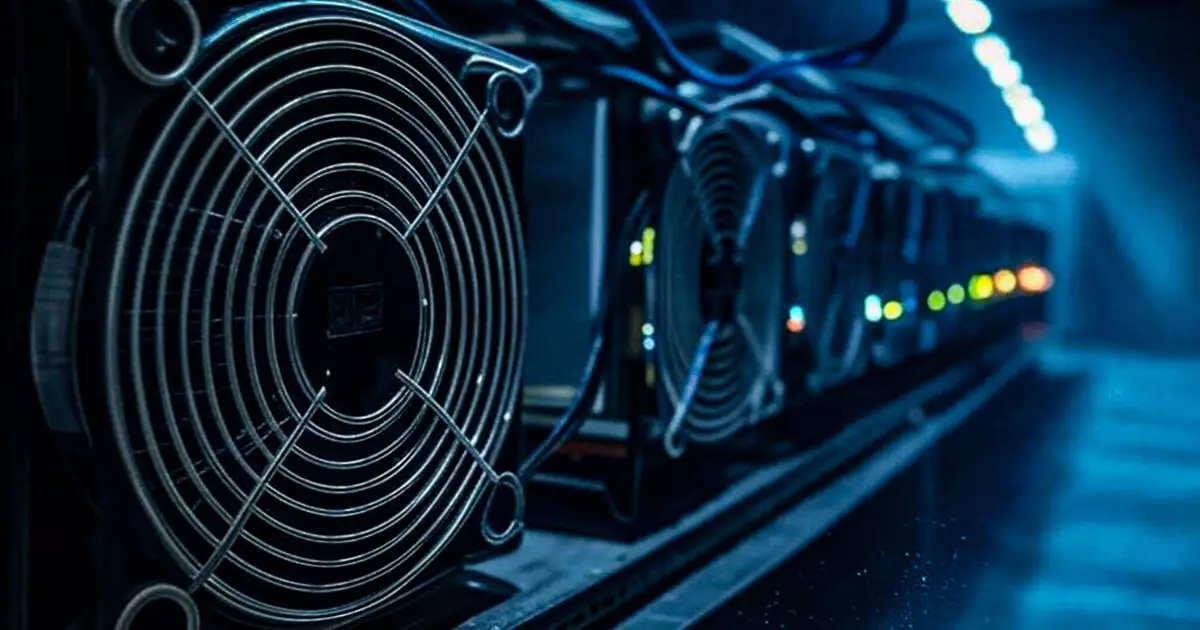The cryptocurrency mining industry in the United States is currently navigating through a turbulent landscape, marked by significant delays in the receipt of ASIC (Application-Specific Integrated Circuit) mining hardware. This setback, particularly affecting miners who rely heavily on Chinese-manufactured rig supplies, is a direct result of intensified scrutiny from U.S. Customs and Border Protection (CBP). As the demand for Bitcoin mining escalates, American miners find themselves caught in a complex web of geopolitical tensions and trade barriers that are worsening their business conditions.
The scrutiny of shipments correlates with already strained US-China relations, fuelled by recent allegations against Xiamen Sophgo Technologies Ltd., a Chinese AI firm linked to Bitcoin mining giant Bitmain. In January, the US Commerce Department placed Sophgo on a blacklisting list due to concerns that it could assist China in advancing its capabilities in chip manufacturing. Consequently, shipments of Bitmain machines, which dominate the market for Bitcoin mining rigs with a staggering 90% share, are experiencing significant delays. The regulatory climate is hardening, with customs officials not only examining machines more closely but also demanding rigorous documentation, such as certificates of origin, which has lengthened the import process.
Adding to this challenging situation is the imposition of additional tariffs on imports from China, a move that has been in place since 2018 but has escalated under the Trump administration. This year alone, a new 10% tariff was announced, significantly affecting those reliant on imported mining hardware. As Nuo Xu, founder of the China Digital Mining Association, indicated, airlifts of mining apparatus are getting caught in intensive customs inspections, aggravating the backlog and delay in shipment arrivals. Reports paint a concerning picture of delays for operations that depend on a stable supply of machinery—one Oklahoma-based miner with a significant 2,000 rigs has been adversely affected, causing operational setbacks that could reduce competitiveness.
The blowback from these interruptions cannot be understated. Industry experts predict that a prolonged scenario where miners cannot access cutting-edge equipment will lead to substantial project cancellations and a slowdown in mining expansion across the nation. Taras Kulyk, a key figure in the hardware brokerage sector, has warned that if tariffs remain elevated, the importation of newly developed mining rigs could effectively come to a standstill, pushing some aspiring mining operations into dormancy. While some firms like Bit Digital report relatively minor delays, the cumulative effect is more severe for others experiencing prolonged setbacks.
With the ongoing strains on international supply lines, it becomes critical to explore alternative solutions. Recognizing the growing difficulties, Bitmain has initiated a domestic production line within the US aimed at mitigating the risks associated with international shipments. The potential rollout of the Antminer S21 Pro from this new facility offers glimmers of hope. It promises not only to enhance efficiency but also to shield miners from the unpredictability of international customs scrutiny. This strategic shift may well pave the way for a more self-sustained American mining ecosystem.
The challenges facing US-based crypto miners due to shipment delays and the escalation of tariffs indicate a pressing need for resilience in planning and operations. While efforts to shift towards domestic production signify a proactive approach, the immediate future remains uncertain. As competition from both domestic and international players intensifies, American miners must innovate and adapt to not only survive but thrive amidst these mounting pressures. It is clear that the landscape of cryptocurrency mining is evolving rapidly, and those who can navigate these choppy waters effectively will define the next chapter of this burgeoning industry.















Leave a Reply